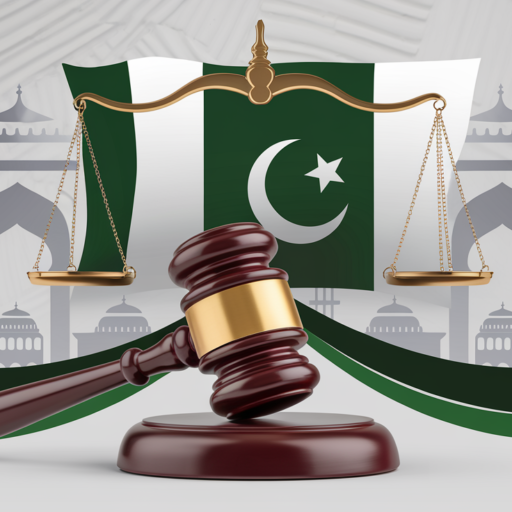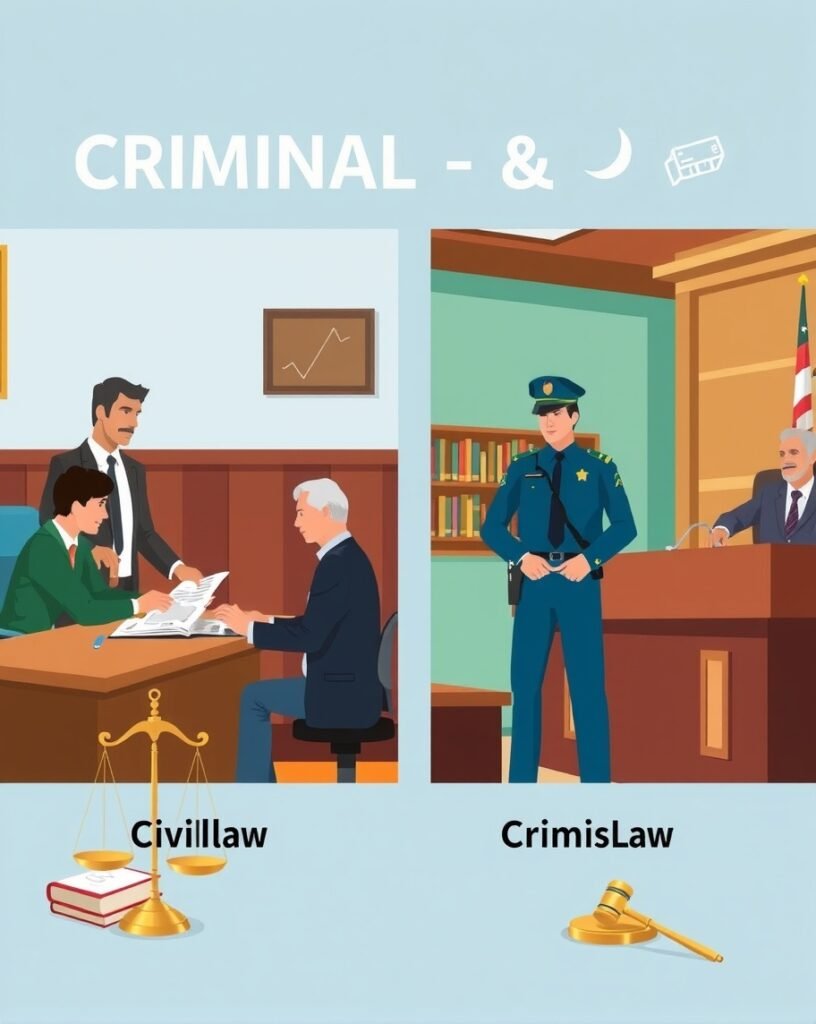Law in Pakistan is broadly divided into two main categories: civil law and criminal law. While both play a crucial role in maintaining order and justice, they serve different purposes, involve different legal procedures, and have distinct consequences. In this blog post, we’ll explore the key differences between civil and criminal law in Pakistan and why understanding these differences is important.
1. What is Civil Law?
Civil law in Pakistan deals with private disputes between individuals, organizations, or entities. It governs matters related to contracts, property, family disputes, consumer rights, and business transactions.
Common Civil Law Cases in Pakistan:
- Breach of contract disputes
- Property disputes (ownership, land encroachments, etc.)
- Family matters (divorce, child custody, inheritance)
- Defamation and reputation damage cases
- Consumer rights violations
Legal Consequences in Civil Cases:
In civil law, the primary objective is compensation or resolution of disputes rather than punishment. The party found at fault may be required to:
- Pay monetary compensation (damages)
- Fulfill the contract terms
- Return disputed property
- Comply with a court order (injunction)
Civil cases in Pakistan are governed by laws like the Contract Act 1872, Transfer of Property Act 1882, and Family Laws Ordinance.
2. What is Criminal Law?
Criminal law in Pakistan deals with offenses that are considered harmful to society. These laws aim to punish individuals who commit crimes such as murder, theft, fraud, corruption, and cybercrimes.
Common Criminal Law Cases in Pakistan:
- Murder and homicide cases
- Theft, robbery, and burglary
- Fraud and forgery
- Cybercrime and online harassment
- Drug trafficking and illegal possession of weapons
Legal Consequences in Criminal Cases:
Unlike civil law, criminal cases involve state prosecution (handled by the police and the judiciary) and aim to punish offenders. Punishments may include:
- Imprisonment (temporary or life sentence)
- Death penalty (for serious crimes like terrorism or murder)
- Fines or financial penalties
- Community service or probation
Criminal cases in Pakistan are governed by laws such as the Pakistan Penal Code (PPC) 1860, Code of Criminal Procedure (CrPC) 1898, and Anti-Terrorism Act 1997.
3. Key Differences Between Civil and Criminal Law in Pakistan
| Factor | Civil Law | Criminal Law |
|---|---|---|
| Purpose | Resolves disputes and provides compensation | Punishes offenders and prevents crimes |
| Parties Involved | Private individuals, companies, or organizations | The State (government) prosecutes the accused |
| Legal Consequences | Compensation, injunctions, or specific performance | Imprisonment, fines, or execution |
| Burden of Proof | Preponderance of evidence (more likely than not) | Beyond a reasonable doubt |
| Court Handling Cases | Civil courts (family courts, consumer courts, etc.) | Criminal courts (sessions courts, anti-terrorism courts, etc.) |
4. Can a Case Be Both Civil and Criminal?
Yes, some cases can have both civil and criminal aspects. For example:
- A fraud case may result in criminal charges (punishment for the fraudster) and a civil lawsuit (to recover financial losses).
- A defamation case can be both a civil suit (for damages) and a criminal offense (if it meets the criteria for criminal defamation).
5. How to Seek Legal Help in Pakistan?
If you are involved in a legal dispute, consulting a qualified lawyer is crucial. Here’s what you can do:
- For civil matters, approach a civil lawyer specializing in contracts, family law, or property disputes.
- For criminal matters, contact a criminal defense lawyer or report the crime to the police.
- Use Pakistan’s legal aid services if you cannot afford a lawyer.
Conclusion
Understanding the difference between civil and criminal law in Pakistan helps individuals protect their rights and take the correct legal steps when facing disputes or criminal accusations. While civil law focuses on resolving private conflicts, criminal law ensures public safety and justice through punishment. If you need legal assistance, always consult a licensed advocate in Pakistan for the best advice.

